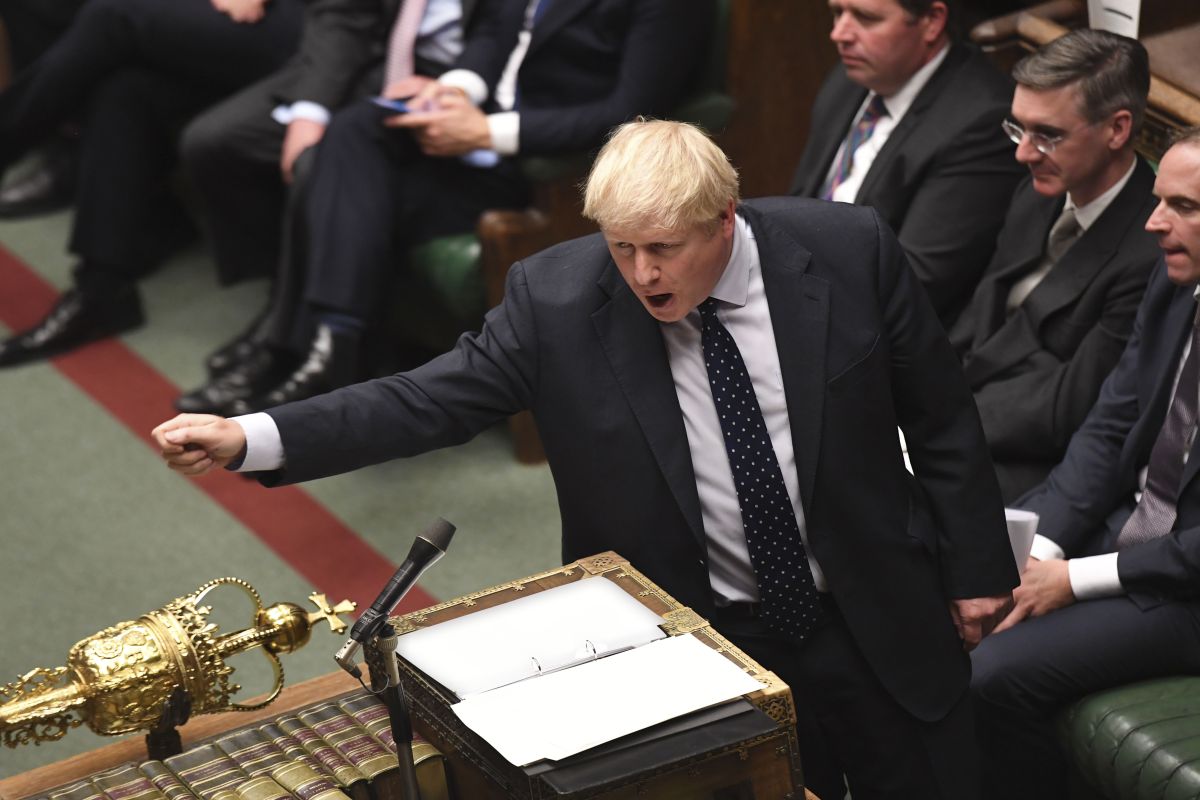UK Prime Minister Boris Johnson on Saturday addressed the House of Commons ahead of a knife-edge vote on his latest Brexit deal, a last-ditch attempt before the October 31 deadline to leave the European leave (EU).
Johnson told to the lawmakers that the divorce agreement he struck this week in Brussels would be a “new way forward and a new and better deal both for Britain and our friends in the EU”.
Advertisement
Johnson began his address by thanking Parliament staff for allowing the first Saturday sitting of MPs in 37 years.
Addressing to the Parliament, PM Johnson said, “This is the moment” the Commons can reach agreement on Brexit”.
It’s time to “move on and build a new relationship” with Europe, Johnson added.
Johnson is currently making a statement to lawmakers, after which there will be a debate and then votes on amendments and finally – if all goes according to the government’s plan – his deal.
Johnson ended his statement by saying that his deal can “heal the country” and that, as democrats, MPs must back the result of the 2016 referendum.
He wants the country to be “generous” and “outward-looking”.
In response to Johnson’s address, opposition Labour Party leader Jeremy Corbyn said the new deal was “even worse” than May’s.
Earlier on Thursday, Johnson took to Twitter, and said, “We’ve got a great new deal that takes back control”.
The two sides have been working on the legal text of a deal, but it will still need the approval of both the UK and European Parliaments.
On Thursday, the Northern Irish party had released a statement, and said that they could not support Johnson’s Brexit plan in its current form and after PM announcement they said that our statement “still stands”.
Earlier this week, the EU’s Brexit negotiator Michel Barnier said that a divorce deal with the United Kingdom is still possible this week but the British government needs to come forward with a legal text.
The new deal is largely the same as the one agreed by former Prime Minister Theresa May last year – but it removes the controversial backstop clause, which critics say could have kept the UK tied indefinitely to EU customs rules.
Johnson has repeatedly said Brexit will happen by the end of the month with or without a deal.
However, MPs passed a law in September, known as the Benn Act, which requires the Prime Minister to send a letter to the EU asking for an extension until January 2020 if a deal is not agreed – or if MPs do not back a no-deal Brexit.
(With inputs from IANS)









